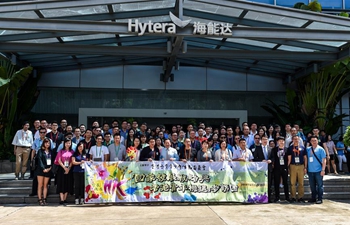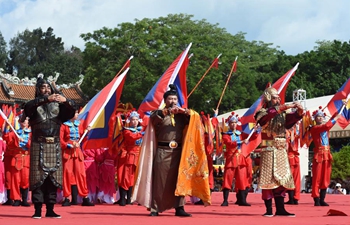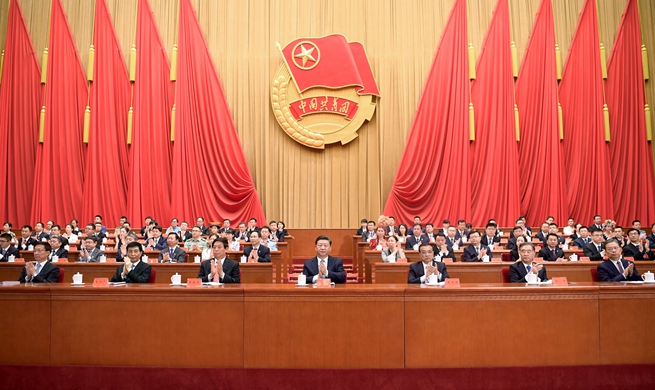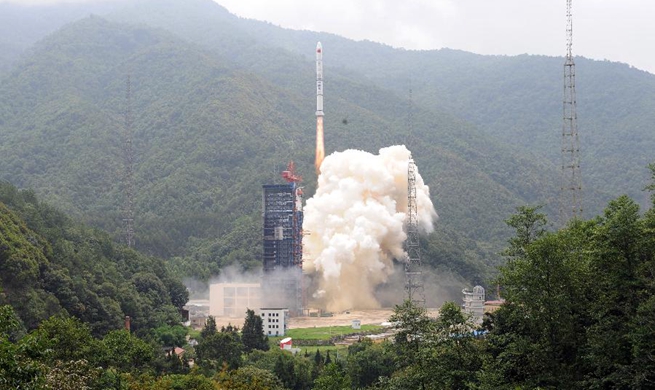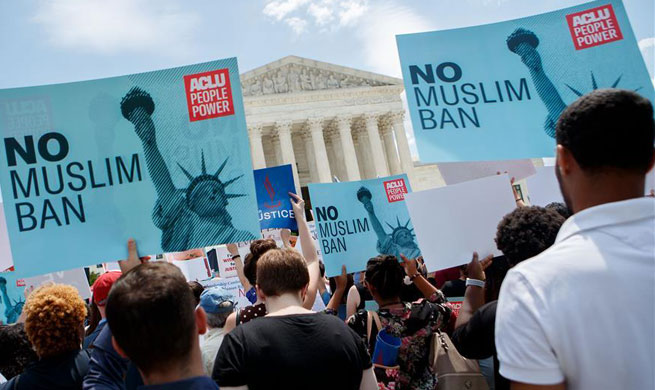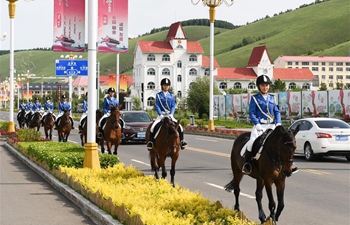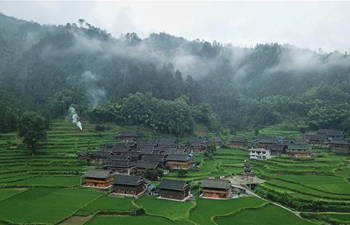TRIPOLI, June 27 (Xinhua) -- Libya's UN-backed government in Tripoli on Tuesday called on the UN Security Council (UNSC) to stop any "illegal sale" of oil, after the eastern-based army refused to hand over the oil crescent region to the government in Tripoli.
The eastern-based army said in a statement released on Monday that it would transfer the oil crescent region to the National Oil Corporation (NOC) of the eastern-based interim government, instead of the Tripoli-based UN-backed government.
The eastern army's announcement came a few days after it took over the oil crescent region following defeating the terrorists occupying it.
The announcement called on the companies operating in the region to deal with the eastern government's National Oil Corporation.
"The mercenaries who attacked the oil crescent region receive their salaries from the sale of Libyan oil. They receive financial support, vehicles, arms and ammunition, and they hold agreements with Chadian mercenaries over the oil money that we secure," it said.
"The decision was taken after consultation between the leaders of the armed forces and studying the issue in all respects, and also after various reports that confirmed that the terrorists are funded by the Libyan oil revenue," it added.
The oil crescent region is located some 500 km east of the capital Tripoli and contains the country's largest oil reserves.
The UN-backed government in Tripoli on Tuesday slammed the eastern-based army for "increasing division and undermine years of local and international efforts to achieve stability."
"There is only one legitimate NOC, recognized by the international community and OPEC," said Mustafa Sanalla, Chairman of the Tripoli-based National Oil Corporation (NOC).
"Exports by parallel institutions (NOC of eastern-based interim government) are illegal and will fail as they did in the past," Sanalla added.
UNSC resolutions are very clear: oil facilities, production, and exports must remain under the exclusive control of NOC and the sole oversight of the Government of National Accord (GNA).
"We are confident that the GNA and our international partners will take necessary steps to stop all exports that breach international law," stressed Sanalla.
The Tripoli-based corporation warned companies against "entering contracts to buy oil from parallel institutions. They will not be honored and NOC will pursue legal actions against them by all options available."
A terrorist group, known as Benghazi Defense Brigades, allied with Ibrahim Jathran, a wanted ex-chief of the oil installation guards service, recently attacked the Libyan oil crescent region and clashed with the army forces there.
A few days later, eastern-based army expelled the terrorist groups and took over the region.
Despite signing a UN-sponsored peace agreement by the Libyan political parties in 2015, Libya remains politically divided between eastern and western governments, both competing for legitimacy.
The oil-rich country has been plagued by insecurity and chaos since the 2011 uprising that toppled former leader Gaddafi's regime.
Oil and gas account for 94 percent of Libya's foreign exchange earnings, and are key sources of national income.
Libya suffered losses over the past years of more than 140 billion U.S. dollars due to repeated closure of oil fields and ports, as well as low prices of oil in global market.
Libya has one of Africa's largest oil reserves of 41 billion barrels.





